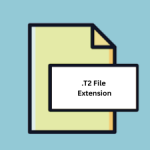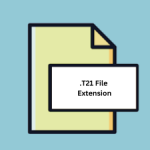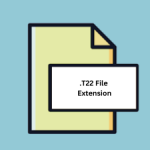.MQ File Extension

Message Queuing Message Log File
| Developer | Microsoft |
| Popularity | |
| Category | Data Files |
| Format | .MQ |
| Cross Platform | Update Soon |
What is an MQ file?
.MQ file extension is associated with Message Queuing, a technology used for asynchronous communication between applications.
These files serve as message log files, storing information about messages exchanged between applications or processes. .MQ files play a crucial role in tracking message transactions, ensuring reliability, and facilitating troubleshooting in messaging systems.
More Information.
Message Queuing systems, including the .MQ file formats, have been integral components of enterprise messaging architectures for decades.
Initially, they were developed to facilitate communication between disparate systems in large organizations.
These systems allowed for reliable, asynchronous communication even in the presence of network failures or system downtime.
Origin Of This File.
The concept of message queuing dates back to the early days of computer networking when the need arose for reliable communication between distributed systems.
Message Queuing was developed to address this need by providing a mechanism for asynchronous communication, where messages are stored in a queue until they can be processed by the recipient.
File Structure Technical Specification.
.MQ files typically store messages in a structured format, often based on industry-standard messaging protocols such as MQTT (Message Queuing Telemetry Transport) or AMQP (Advanced Message Queuing Protocol).
The exact structure and specifications of .MQ files can vary depending on the messaging platform or software used.
Common components of .MQ files include:
- Message header: Contains metadata such as message ID, timestamp, sender, and recipient information.
- Message body: Contains the actual content of the message, which can be in various formats such as text, binary, XML, or JSON.
- Queue information: Specifies the queue or destination where the message is intended to be delivered.
- Transactional information: Tracks the status of message transactions, including delivery confirmation, retries, and error handling.
How to Convert the File?
Converting .MQ files to other formats may not be a common requirement, as these files are primarily used for internal messaging purposes within message queuing systems.
If conversion is necessary, it typically involves extracting the message content from the .MQ file and converting it to the desired format, such as text, XML, or JSON.
This can be achieved using custom scripts or software tools designed for message parsing and transformation.
Advantages And Disadvantages.
Advantages:
- Asynchronous communication: Allows for decoupling of sender and receiver, enabling more flexible and scalable architectures.
- Reliability: Messages are stored in queues until successfully processed, reducing the risk of data loss.
- Scalability: Can handle large volumes of messages and support distributed systems.
- Fault tolerance: Provides mechanisms for handling network failures, system crashes, and message processing errors.
Disadvantages:
- Complexity: Implementing and managing message queuing systems can be complex, requiring specialized knowledge and infrastructure.
- Overhead: Message queuing introduces overhead in terms of processing, storage, and network bandwidth.
- Latency: Asynchronous communication may introduce latency compared to synchronous communication methods.
- Scalability limitations: While Message Queuing systems are scalable, they may encounter performance limitations under extremely high message loads.
How to Open MQ?
Open In Windows
- On Windows systems, .MQ files are commonly associated with Microsoft Message Queuing (MSMQ), which provides built-in support for managing and processing message queues. Administrators can use the MSMQ Management Console to view and manipulate .MQ files.
Open In Linux
- In Linux or Unix environments, open-source message queuing systems such as RabbitMQ or Apache ActiveMQ can be used to handle .MQ files. These systems provide command-line tools and APIs for managing message queues and processing .MQ files.
Open In MAC
- While macOS does not natively support .MQ files, developers can use third-party message queuing libraries and frameworks such as RabbitMQ or ZeroMQ to work with message queues on macOS systems.













